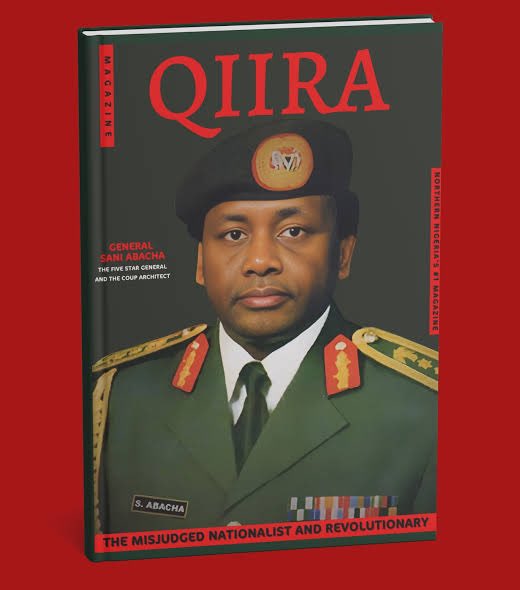By Abdullahi Inuwa
Prominent social commentator Sameer Lukman has stirred fresh debate over the legacy of former Nigerian Head of State, General Sani Abacha. In a thought-provoking post on his X account, Lukman challenged the prevailing narrative that paints Abacha as a villain, arguing that his stance against foreign interference was the real reason for his demonization.
Lukman acknowledged that Abacha may have committed “sins and grievances” but insisted that those who condemn him often overlook their own wrongdoings or those of others who served foreign interests. He questioned why critics refuse to acknowledge the complexity of Abacha’s rule, stating that no leader is without flaws.
According to Lukman, Abacha’s poor reputation among Western powers stemmed from his refusal to align with their agenda. “They don’t rate Abacha well because, in the end, he realized they weren’t fighting for the country’s interests,” he wrote. “He rejected foreign intervention in Nigeria, and that’s why they hated him.”
However, Lukman also raised a critical question: If Abacha’s relationship with the West was truly adversarial, how was he able to stash vast amounts of money in European banks? The infamous Abacha loot, which has been subject to multiple repatriation efforts over the years, remains one of the biggest corruption scandals in Nigerian history.
Drawing parallels between Abacha and Libya’s former leader Muammar Gaddafi, Lukman described both as strong-willed leaders who prioritized national independence over foreign control. He praised Gaddafi for transforming Libya into one of Africa’s most developed nations, offering free healthcare, education, and housing. Despite these achievements, he argued, Gaddafi was demonized and ultimately assassinated because he defied globalist influence.
Lukman suggested that Abacha faced a similar fate—not in the form of assassination but in the way history has judged him. “The pattern is undeniable: leaders who refuse to bow to globalist influence are vilified and eliminated,” he wrote.
In a further twist, Lukman accused some of Abacha’s harshest critics of benefiting from his rule, yet failing to acknowledge his contributions. “Many who hate Abacha and have betrayed his legacy wouldn’t even be in the positions they hold today without him,” he claimed, suggesting that his leadership laid the foundation for some of Nigeria’s political elites.
His closing remarks hinted at a future reassessment of Abacha’s legacy. “For me, Abacha will always be someone who wanted Nigeria to break free from foreign shackles, and history will one day judge him differently.”
Lukman’s post has since sparked heated discussions online, with reactions divided between those who agree with his perspective and others who argue that Abacha’s authoritarian rule and allegations of corruption cannot be ignored. While some see him as a nationalist who resisted Western dominance, others remember him as a dictator responsible for human rights abuses.
As debates over Nigeria’s past leaders continue, Lukman’s comments highlight the enduring complexities of Abacha’s legacy—one that remains a subject of controversy decades after his death.
Abdullahi Inuwa
Social Commentator
ainuwa303@gmail.com




